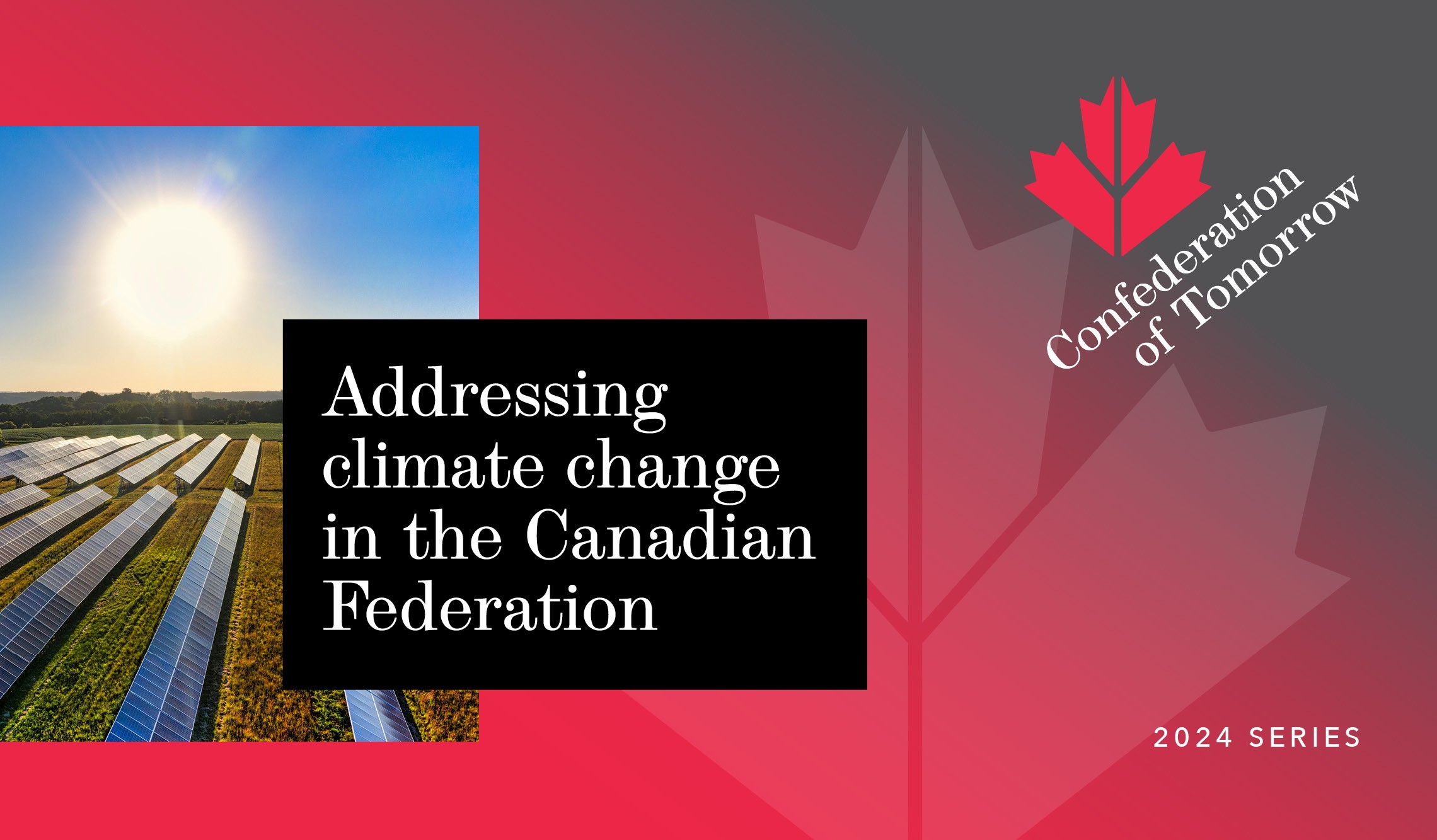Addressing climate change in the Canadian federation

Addressing climate change in the Canadian federation
The 2024 Confederation of Tomorrow survey reveals that Canadians are much more focused on the cost of living than climate change, as was the case in 2023. Despite this, many Canadians have taken note of the connection between the changing climate and significant changes in weather patterns. More than one in two feel that climate change is definitely or likely having visible impacts on where they live (though fewer than three in ten say this is definitely the case). And Canadians on the whole are marginally more likely to believe climate change policies will have a positive rather than a negative impact on the economy of the country, of their province or territory, and of their local community over the next decade.
Key findings:
- Few Canadians – just one in twenty – identify climate change or the environment top-of-mind as the single most important problem facing the country today. The predominant focus is on economic challenges, mostly associated with the rising cost of living and housing affordability.
- More than one in two Canadians are convinced that changes in their part of the country are likely, if not definitely, due to climate change. One in five do not notice anything they would attribute to climate change. Public perception of local climate change impacts has changed relatively little over time.
- Canadians are evenly divided on the relative priority that should be given to protecting the environment versus protecting jobs, with some variation across regions and federal party support. The emphasis placed on environmental protection has declined since 2023 across the population.
- A plurality of Canadians continues to favour a gradual phase-out of fossil fuels to address climate change, with smaller proportions advocating either a fast phase-out or a timetable that prioritizes jobs in the oil and gas sector. Perspectives differ noticeably by region and political affiliation.
- Canadians are marginally more likely to believe that climate change policies will have a positive rather than a negative impact on the economy of the country, of their province or territory, and of their local community over the next decade.
- Canadians continue to be more likely to trust the federal government than their provincial or territorial government to address climate change, but this preference has declined over the past year as an increasing proportion say they trust neither government on this issue.
The Confederation of Tomorrow surveys give voice to Canadians about the major issues shaping the future of the federation and their political communities. They are conducted annually by an association of the country’s leading public policy and socioeconomic research organizations:the Environics Institute for Survey Research, the Centre of Excellence on the Canadian Federation, the Canada West Foundation, the Centre D’Analyse Politique – Constitution et Fédéralisme, the Brian Mulroney Institute of Government and the First Nations Financial Management Board.
The 2024 study consists of a survey of 6,036 adults, conducted between January 13 and April 13, 2024 (82% of the responses were collected between January 17 and February 1); 94% of the responses were collected online. The remaining responses were collected by telephone from respondents living in the North or on First Nations reserves.
For more information, contact Dr. Andrew Parkin or the Environics Institute for Survey Research.
Survey materials:
Report: Addressing climate change in the Canadian federation
Like what you're reading? With our bi-monthly e-newsletter, you can receive even more with the latest details on current projects, news, and events at the institute.
Subscribe